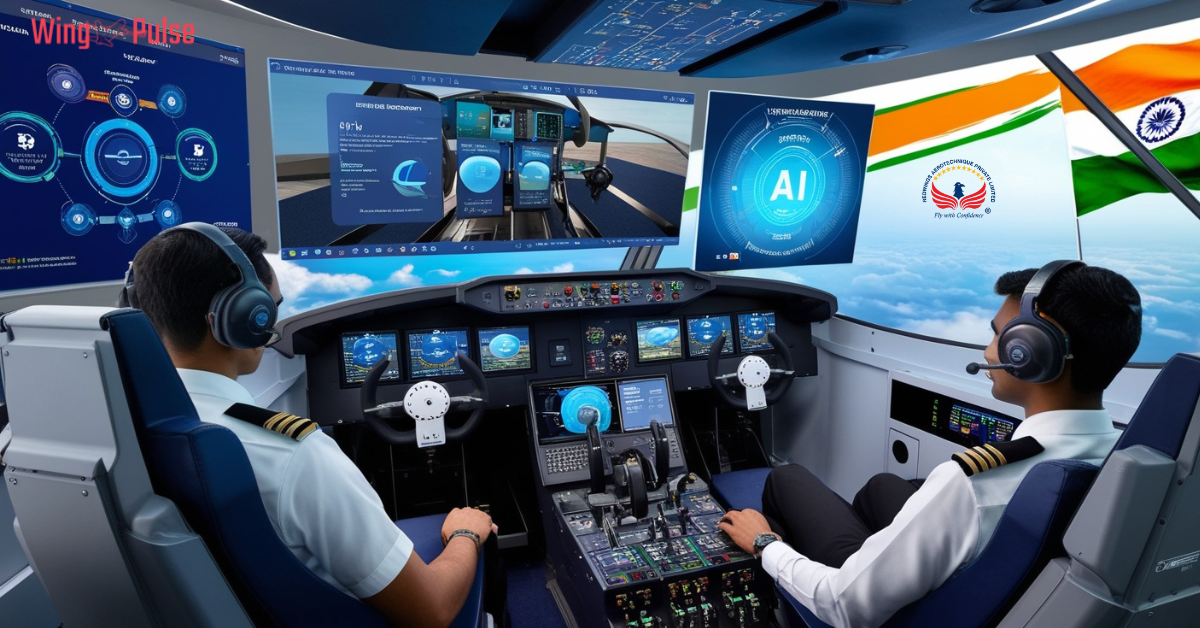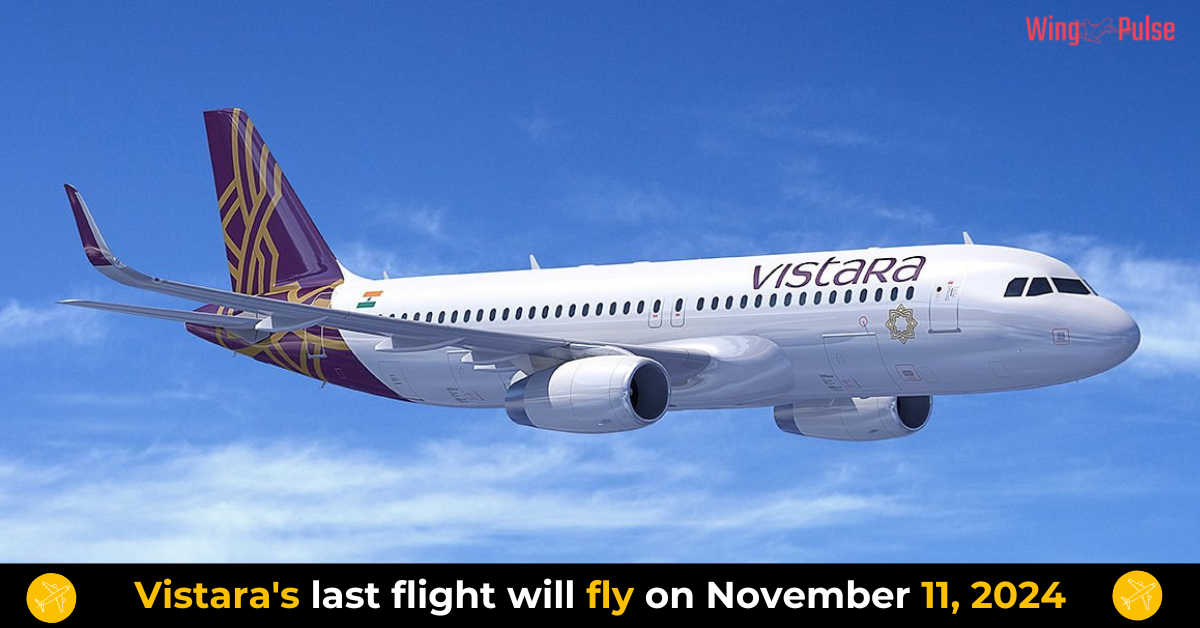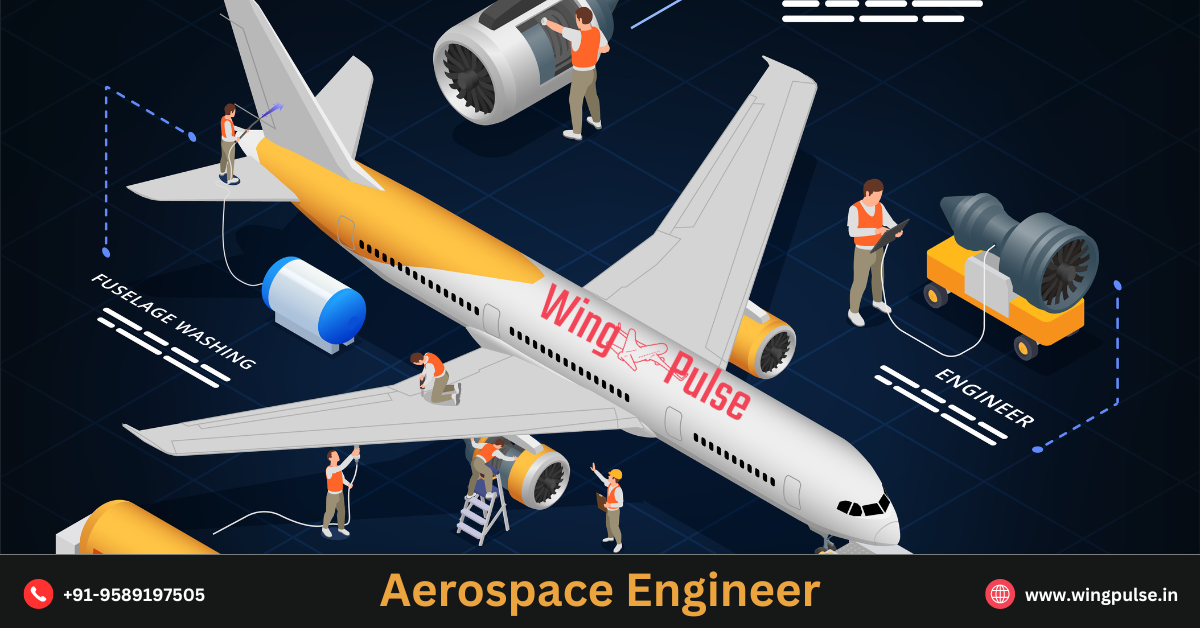How AI is Revolutionizing Pilot Training in India

AI in Pilot Training India : Artificial intelligence (AI) is making waves across various industries, and aviation is no exception. In India, where the aviation sector is expanding rapidly, AI is having a profound impact on how pilots are trained. If you’re interested in understanding how this technology is reshaping pilot training, read on to discover the key developments.
Table of Contents
Advanced Simulation Training (AI in Pilot Training India)
AI has significantly upgraded flight simulation technology. Traditional simulators have long been a staple in pilot training, but AI-driven simulators take realism and adaptability to a new level. These advanced systems can create dynamic, lifelike scenarios that adjust in real time based on the pilot’s actions.
Indian aviation training centers are increasingly adopting these AI-enhanced simulators. They allow trainee pilots to experience a wide range of flight conditions and emergency scenarios that would be difficult or unsafe to replicate in real life. This enhanced training environment helps pilots build experience and confidence in managing various situations safely.
Customized Training Programs
AI enables the creation of tailored training programs that address each pilot’s specific needs. By analyzing performance data, AI systems can pinpoint areas where a trainee might need additional focus. For instance, if a pilot struggles with certain maneuvers, the AI can adjust the training curriculum to provide extra practice in those areas.
In India, this customized approach helps training institutions efficiently utilize their resources and provide targeted instruction, leading to more effective training and better-prepared pilots.
Instant Performance Feedback
AI technology provides real-time feedback during training sessions. Whether in simulators or during actual flight practices, AI systems can analyze a pilot’s performance and offer immediate suggestions for improvement. This instant feedback helps pilots correct errors on the spot and enhances the learning process. Indian aviation schools are increasingly incorporating AI tools that provide real-time insights, allowing trainees to adapt quickly and improve their skills more effectively.
Predictive Maintenance for Safety
AI enhances safety through predictive maintenance, which anticipates and addresses potential issues before they become problems. AI systems analyze data from aircraft components to forecast when maintenance will be needed, ensuring that training aircraft are always in optimal condition.
In India, where maintaining safety standards is crucial, AI-driven predictive maintenance helps keep training aircraft in top shape, contributing to a safer training environment.
Efficient Administrative Tasks
AI streamlines many administrative tasks related to pilot training, from scheduling flights to managing trainee records. By automating these routine activities, AI allows instructors to focus more on teaching and less on administrative work.With the growth of the aviation sector in India, this efficiency is crucial for managing increasing numbers of trainees and administrative requirements effectively.
Enhanced Data Analysis
AI excels in handling and analyzing large datasets. In pilot training, this means AI systems can track and analyze data from various training sessions to monitor progress over time. This data-driven approach helps instructors tailor their teaching methods to each trainee’s needs.Indian aviation training centers are leveraging AI’s data analytics capabilities to provide each pilot with the most effective training based on objective insights.
Improving Decision-Making Skills
AI tools are also used to enhance pilots’ decision-making skills. By simulating complex scenarios and evaluating responses, AI helps trainees develop better judgment and decision-making abilities. These tools can present a variety of challenges and assess how well pilots manage them.
In the context of India’s growing aviation industry, focusing on decision-making skills is essential for preparing pilots to handle the complexities of modern aviation.
Bridging the Skill Gap
AI is addressing the skill gap by offering additional training resources and support. For example, AI-powered chatbots can provide 24/7 assistance, answering questions and offering guidance outside of regular training hours. This on-demand support allows trainees to access information whenever needed.
Indian aviation training institutions are adopting these AI tools to offer flexible and accessible support, helping trainees learn at their own pace.
Conclusion
AI is revolutionizing pilot training in India by enhancing simulation realism, personalizing training programs, providing immediate feedback, and improving safety and efficiency. As the aviation sector continues to grow, these advancements are helping ensure that pilots are well-equipped to meet modern demands. Staying informed about these AI-driven changes can offer valuable insights into the evolving landscape of aviation education. The future of pilot training is promising, and AI is leading the way in this exciting transformation.
What role does AI play in pilot training?
AI enhances pilot training by providing advanced simulation environments, personalized training programs, real-time feedback, and predictive maintenance. These technologies help create more realistic training scenarios, tailor learning experiences to individual needs, and improve overall training efficiency and safety.
How do AI-driven flight simulators differ from traditional simulators?
AI-driven flight simulators offer more dynamic and adaptive scenarios compared to traditional simulators. They can simulate a wider range of flight conditions and emergencies, adjusting in real-time based on the pilot’s actions, which enhances realism and provides a more comprehensive training experience.
What are personalized training programs in AI-based pilot training?
Personalized training programs use AI to analyze a trainee pilot’s performance data and identify areas for improvement. This allows the training curriculum to be customized to focus on the pilot’s specific strengths and weaknesses, ensuring more effective and targeted learning.
How does AI provide real-time feedback during training?
AI systems analyze a pilot’s actions and performance during training sessions and offer immediate feedback. This real-time insight helps pilots correct mistakes on the spot and adjust their techniques, leading to faster learning and skill development.
What is predictive maintenance, and how does it benefit pilot training?
Predictive maintenance uses AI to monitor and analyze data from aircraft components to predict when maintenance will be needed. This proactive approach ensures that training aircraft are always in optimal condition, reducing the risk of technical issues and enhancing safety during training.
How does AI streamline administrative tasks in aviation training centers?
AI automates routine administrative tasks such as scheduling flights, managing records, and handling trainee queries. This automation reduces the administrative burden on instructors and staff, allowing them to focus more on teaching and improving the overall efficiency of training operations.
In what ways does AI improve decision-making skills for pilots?
AI tools simulate complex flight scenarios and assess a pilot’s decision-making in these situations. By analyzing how pilots respond to various challenges, AI helps them develop better judgment and decision-making skills, which are crucial for handling real-world flying conditions.
How does AI contribute to bridging the skill gap in pilot training?
AI helps bridge the skill gap by providing additional resources and support, such as AI-powered chatbots that offer 24/7 assistance. These tools provide trainees with access to information and guidance outside of regular training hours, allowing for more flexible and comprehensive learning.
Are AI-driven training tools widely adopted in India?
Yes, AI-driven training tools are increasingly being adopted in aviation training centers across India. As the aviation sector in India grows, these technologies are being integrated to enhance training quality and efficiency, ensuring that pilots are well-prepared for the demands of modern aviation.
What are the future prospects of AI in pilot training?
The future prospects of AI in pilot training are promising. As AI technology continues to advance, it is expected to bring even more innovations, such as more immersive simulations, better predictive analytics, and more refined personalized training programs. These developments will further enhance the training experience and effectiveness for pilots.


